
Last month on LitHub, a writer and bookseller named Stephen Sparks published a list of “Ten Great Writers Nobody Reads,” lamenting the fate of 10 great prose stylists from the last century. Sparks included Jane Bowles, who, he writes, had been mentioned in “a list of ‘undeservedly neglected’ writers in The American Scholar as far back as 1970 and likely will be again in another 40 years.”
We plunged into our archives and dug up the list in question. In “Comments on Neglected Books of the Past Twenty-Five Years” (Spring 1970), the Scholar’s editors asked “distinguished men and women” to name “that book published in the past quarter of a century that they believed to have been the most undeservedly neglected.” Sixty-four poets, playwrights, historians, critics, novelists, and sundry literary figures answered the call, suggesting everything from avant-garde fiction to forgotten French histories and even a book about neglected books themselves.
The Scholar’s editors noted that 15 years prior, the magazine had posed the same question to another set of writers, and that “our correspondents made a small impact on American literary history. Two of them—Margaret Mead and Alfred Kazin—chose Henry Roth’s Call It Sleep, which led to that book’s rediscovery and reissue, and subsequent critical acclaim.”
We’ll be republishing the 1970 responses over the next week, with relevant notes on their reemergence or continued neglect. With any luck, a small impact can be made on American literary history once again.
Ned Rorem:
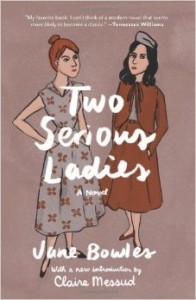
“For me the most neglected book is Jane Bowles’s Two Serious Ladies, published by Knopf over a quarter-century ago when the author was 24. Although twice reprinted, with good reviews, the work has had minimal circulation. Its promoters today are the same as yesterday, a staunch lunatic fringe for whom the book has become, so to speak, famous for being unknown. They find continual vitality in the insane charm, the ever-contagious invention, but also in the genetic influence of this novel. One trend of American fiction, in both style and matter (including much of Williams, Capote, McCullers, even Mrs. Bowles’s husband Paul, and more recently Gavin Lambert, John Ashbery, and James Schuyler) would never have been quite the same without Two Serious Ladies.
Like Erik Satie’s very special coterie music which is finally being enjoyed by a larger audience, perhaps Jane Bowles’s only novel will one day be more widely read. I sincerely hope so—but I will regret it, too. To share one’s private discoveries with the public is a painful pleasure.”
Though her novel was republished in 2010 and profiled in The New Yorker last year, Jane Bowles continues to be out-shined by Paul.
Isaac Asimov:
“I have personally neglected almost every important book published in the last quarter of a century so I haven’t the slightest idea which ones have been neglected by others as well.
There are my own 103 books, all of them published in the last quarter-century and all of them (without exception) neglected. On the other hand, they all get all the attention they deserve so I can’t nominate any of them.”
W. H. Auden:
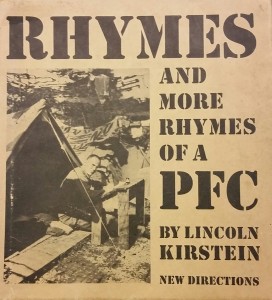
“Rhymes of a Pfc by Lincoln Kirstein (New Directions, 1964). The best volume of poems directly about World War II.”
Auden would go on to write the foreword to Kirstein’s later collection, The Poems of Lincoln Kirstein, which was reviewed in The New York Times. All of his poetry is now, however, out of print.
Carlos Baker:

“My nomination for the ‘most neglected book’ is actually a trilogy: Conrad Richter’s The Trees, The Fields, The Town (Knopf, 1940, 1946, 1950, respectively; reissued in one volume, The Awakening Land, in 1966). If it is not neglected, it is certainly not well enough known. I go back every couple of years to read the continuing story of Sayward Luckett from childhood to old-ladyhood, from wilderness to civilization, and I never cease to marvel at Richter’s evocative powers in the reconstruction of a vanished past, and it is for this reason that I think of it as very literally a ‘marvelous’ book, in a day when the adjective is overused or wrongly used so often.”
In 1978, Richter’s trilogy was adapted as a television miniseries of the same name. Though he won both the Pulitzer Prize and the National Book Award, all of Richter’s books are now out of print with the exception of The Waters of Kronos. But the The Trees and a later novel, A Country of Strangers, are available as e-books.
Jacques Barzun:
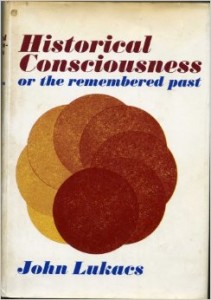
“I think that John Lukacs’ Historical Consciousness (Harper & Row, 1968) is a remarkable work.”
Lukacs, a frequent contributor to the Scholar, turned 91 this year. He wrote a piece for our Autumn 2014 issue.
Samuel Beckett:
“I haven’t had much time for reading in the past quarter of a century and my opinion on the subject, if I could find one, would be quite worthless. Forgive me and all success to your project.”
Harold Bloom:
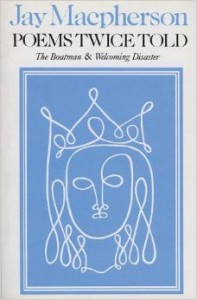
“Because the criticism of new poetry is now mostly abandoned to contemporary poets, who are coterie-ridden and jealous, the most neglected of our books are the rare volumes of superb new poetry. My candidates for the most unjustly neglected books of the last decades are therefore several volumes of poetry—The Boatman by Jay Macpherson (Oxford, 1957); A Harlot’s Hire by Allen Grossman (Walker-DeBerry, 1961); the really astonishing Preambles and Other Poems by Alvin Feinman (Oxford, 1964); and, most of all, the several volumes by A. R. Ammons, culminating in his Selected Poems (Cornell, 1968), for Ammons is now much the best poet we have, although still so little read and known.”
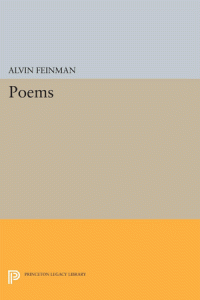
Macpherson’s two books of poetry are out of print, though The Boatman (winner of Poetry magazine’s Levinson Prize in 1957) and Welcome Disaster were reprinted together as Poems Twice Told in 1981. She founded the now-defunct Emblem Books publishing house, which produced eight beautifully illustrated books of poetry.
Grossman, who died last year, was memorialized in the The New York Times as a “poet’s poet” who was awarded both the MacArthur Foundation fellowship and the Bollingen Prize. New Directions has kept eight of Allen Grossman’s collections in print, though A Harlot’s Hire, his first book, is not among them.
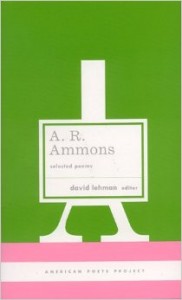
The Princeton Legacy Library published a beautiful new edition of Feinman’s Poems, which combines Preambles and Other Poems, his first book, with more recent poems.
David Lehman, who runs our Next Line, Please crowdsourced poetry blog, edited a new selection of Ammons’s poetry for the Library of America’s American Poets Project. Ammons’s star rose significantly after Bloom wrote about him in the Scholar; his collection A Coast of Trees (1981) won the National Book Critics Circle Award and Garbage (1993) won the National Book Award for Poetry.
Louise Bogan:
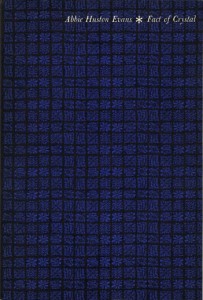
“To my mind, the most neglected poet of the last fifteen years or so is Abbie Huston Evans. Her latest book, published by Harcourt, Brace in 1961, Fact of Crystal, received the Loines Award, and is in every way a remarkable achievement.”
Louise Bogan published several of Evans’s poems in The New Yorker. Fact of Crystal, winner of the National Book Award, is now out of print. Evans was also a friend of Edna St. Vincent Millay, who wrote the introduction to her first collection, Outcrop (1928), also out of print.
Anthony Burgess:
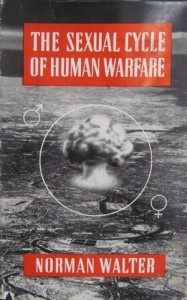
“The Sexual Cycle of Human Warfare by Major Norman Walter, published in London at the Mitre Press in 1950. This book is shamefully neglected. Indeed, I doubt if more than a handful of people know it or know of it. And yet its thesis is original and highly suggestive. It is, briefly, that war is a psychobiological phenomenon, not a political one, and that it can best be studied in terms of such genetic phenomena as hybridization, exogamy and the like. Nature explodes the human group with the aim of genetic recombination. Soldiers never know why they’re fighting (‘We’re here because we’re here because we’re here because we’re here’ was a song of the First World War) and politicians think they know. But the real motives for war lie at the biological level. War, like sex, is ineradicable from human society because is very close to sex.”
No less known now than it was in 1970, Walter’s book is out of print and mysterious—it’s rare to find an account of it as descriptive as Burgess’s.
Melville Cane:
“To invite a poet to determine which, for him, ‘is the most neglected book published in the last quarter of a century,’ imposes a task too embarrassing to contemplate.”
Erwin D. Canham:

“You ask a very difficult question. After much head-scratching, I would suggest Isaiah Berlin’s The Hedgehog and the Fox (Simon and Schuster, 1953). I believe these essays had many insights that deserve reexamination.”
Princeton University Press celebrated the 60th anniversary of the book’s publication in 2013 with a handsome reissue.
Robert Coles:

“I would recommend Max Scheler’s The Nature of Sympathy, which was translated by Peter Heath from the German and published by Yale University Press in 1954. It is a lovely work by a wonderfully tormented German theologian-philosopher-observer of the human predicament.”
Scheler’s book is somewhat less obscrure, thanks to a 2008 reissue by the Library of Conservative Thought.
Babette Deutsch:

“The most neglected book published within the last quarter of a century’ I do not feel qualified to name. But an unusually fine book published during this period that has been undeservedly allowed to drop out of sight is Isabel Bolton’s Many Mansions (Scribner’s, 1952). The author herself thinks of it as the last of a trilogy, which includes Do I Wake or Sleep? and The Christmas Tree, because all offer a view of time past as it impinges on time present. Many Mansions seems to me the most effective of the three. It gives with uncommon clarity and sensitiveness the feelings and reflections of an old woman whose life has been largely a search for a son born out of wedlock and early lost to her. She dies when she is just about to meet her grandson. But the interest of the book is not alone that attaching to her story and her character. It lies also in the background of social history against which these are displayed or with which they are intertwined. It lies as well in what the novel has to say and to suggest about the ‘generation gap,’ a phrase that the old lady recognized without naming, and about the ways in which, as she discovered, it can, roughly, be bridged. It lies not least in the felicity of Isabel Bolton’s style. I hope that the book, along with its predecessors, will be revived.”
Edmund Wilson compared her to Virginia Woolf, but Bolton languished in neglect until Steerforth Press reissued all three of her novels in one volume. New York Mosaic featured an introduction by Doris Grumbach and was reviewed by Gore Vidal in The New York Review of Books. Her literary star did not quite ascend, however, as that 1997 edition has since gone out of print.
James Dickey:
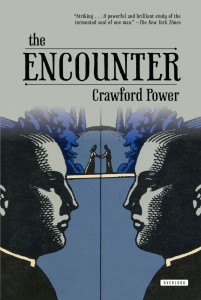
“I would nominate Crawford Power’s The Encounter (Sloane, 1950), a novel about a priest, his dreams—that is literal dreams—and his human commitments. It seems to me to be the best and most mysterious and compelling statement of the strange ways in which the Lord works—or doesn’t work—that I know. It is a moving and original book.”
At last, a happy tale! The Encounter was reissued by The Overlook Press in 1983, and has remained in print ever since. At the time of writing, there was still one (!) copy available on Amazon.
John Fowles:
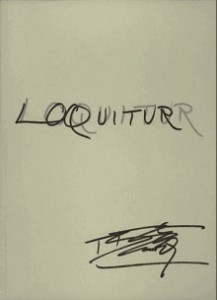
“Alas, I can’t call immediately to mind some secret masterpiece, ignored by all but myself … I can think of a number of books from earlier times I should like to see reprinted and re-enjoyed, but I gather that breaks the rule.
I think the poetry of Ezra Pound’s British disciple, Basil Bunting, has so to speak surprised me most … I mean that it could lie asleep like that for 30 years and only be discovered in the last 10 years. Perhaps he’s always been better known with you.
So Basil Bunting’s Loquitur (published here in England by Fulcrum Press in 1965) is what I should offer; I think he must one day take his place with Auden, Frost, Williams and the rest.”
Bunting, alas, has yet to take his place in Fowles’s pantheon. Loquitur is out of print and fetches an extraordinary price on the antiquarian market, but his complete and collected poems are re-issued every few decades; one is currently in print. Bunting’s verse continues to be anthologized in collections of postwar British poetry.
Brian Glanville:

“Your letter has given me weeks of intense angst, of brooding and rereading. I am still light-years away from a fully satisfactory answer; most of the books I have loved over the last 25 years have been well praised; but I have come to a choice of sorts. Here it is: Prater Violet by Christopher Isherwood (Random House, 1945; London: Methuen, 1946).
Modest, even perfunctory, in tone, it survives through sheer charm, and a surprising poignancy. The mood of a tragic time is beautifully, if elliptically, caught, and the portrait of Bergmann is an enduring delight. It will live longer than many more ambitious, conscientious novels.”
FSG Classics reissued Prater Violet earlier this year in a fine new paperback edition. It joins A Single Man and A Meeting by the River, which received the same treatment in 2013.
E. H. Gombrich:
“I must have neglected reading neglected books. But isn’t the real point now that books are altogether neglected, as we are ushered by Marshall McLuhan into a new ‘galaxy’ of bookless bliss?”
Looking for more obscure books? Read the second part of this piece here.
Correction: An earlier version of this piece alleged that all of Conrad Richter’s works were out of print. The Waters of Kronos is in fact still published by Penn State University Press. Additionally, while Basil Bunting’s individual books are no longer in print, his collected (and uncollected) poetry is available in combined editions.


